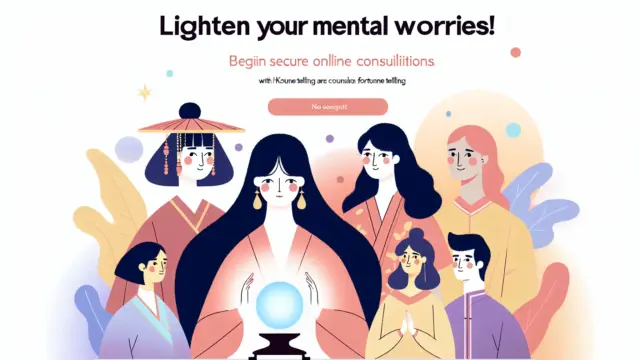Understanding the psychology of women who never decline invitations can be a fascinating journey. Have you ever wondered why some women seem to have an innate ability to say “yes” to every social gathering? This behavior often goes beyond mere politeness; it can reveal deeper insights into their personalities and life experiences.
In this article, we will explore the reasons behind their acceptance of invitations, shedding light on the social pressures they might feel and how their self-esteem plays a crucial role in their choices. By understanding their motivations, we can better appreciate the dynamics of relationships and what it means to truly connect with others.
Join us as we dive into this intriguing topic, examining the signs of affection that may accompany their acceptance, the thought processes behind their decisions, and the challenges they may face. You may just find that there’s more to these women than meets the eye!
- Explore the reasons behind social pressure and acceptance
- Discover the signs of affection when women accept invitations
- Understand the common misunderstandings and solutions surrounding their behavior
Understanding the Psychology of Women Who Do Not Decline Invitations
Reasons Behind Social Pressure and Acceptance
When we think about why some women never turn down invitations, it often comes down to the social pressures they feel. Society tends to place a lot of emphasis on being social and engaging with others. For many, saying “yes” to invitations can feel like a way to meet expectations, maintain friendships, and even avoid the stigma of being perceived as anti-social.
This behavior can also stem from a desire to belong. Women may feel that by accepting invites, they are affirming their place within a social group. It’s a way of saying, “I’m here, and I want to be part of this.” However, it’s essential to recognize that this acceptance might not always stem from genuine interest. Sometimes, the pressure to conform can lead to a reluctance to decline, even if the invitation doesn’t resonate with them.
Understanding this dynamic helps us see that the reasons behind their acceptance are often layered and complex. It’s not just about wanting to attend; it’s about navigating social landscapes that can be tricky and fraught with expectations.
- Social norms can create a strong urge to accept invitations.
- Many women strive to maintain connections with friends and peers.
- There can be a fear of being judged for not participating.
Impact of Self-Esteem
Self-esteem plays a significant role in the decision-making process for women who do not decline invitations. When a woman has high self-esteem, she may feel more confident in her ability to engage socially. This confidence can lead her to accept invitations more readily, as she views these opportunities as chances to showcase her personality and build connections.
On the flip side, low self-esteem can create a different scenario. Women who struggle with their self-worth might feel that attending social events is a way to validate themselves or gain approval from others. They might believe that by saying “yes,” they are proving their worth, even if it means attending events that don’t genuinely interest them.
This interplay between self-esteem and social acceptance highlights how crucial it is to understand individual motivations. It encourages us to reflect on how we can support one another in feeling secure and confident in our choices, whether that means accepting or declining invitations.

If you found this article insightful, you might also be interested in exploring how self-esteem influences communication in relationships. Check out the article “Unlock the Key to Love Success! A Deep Dive into the Psychology of Assertive Women and Men” for valuable insights on how assertiveness can shape interactions and deepen connections in your love life.
- High self-esteem often leads to increased social engagement.
- Low self-esteem can drive the need for external validation.
- Understanding self-esteem levels can foster more meaningful connections.
Moments When Women Accept Invitations
Signs of Affection
When women accept invitations, it’s often accompanied by subtle signs of affection. These signals can manifest in various ways, such as their body language and engagement during the event. For example, a warm smile or enthusiastic conversation can indicate that they genuinely enjoy being around others. Their willingness to participate actively in discussions or activities often reflects a desire to connect and bond with those around them.
Moreover, the way they express gratitude for the invitation can also reveal their feelings. A simple “Thank you for inviting me” can carry deeper meaning, showcasing appreciation for the effort put into including them. It’s essential to recognize these signs, as they highlight the emotional nuances that underlie their acceptance of invitations.
- Body language often reflects their enjoyment in social settings.
- Engaging actively in conversations indicates a desire to connect.
- Expressions of gratitude can reveal deeper emotional appreciation.
Varieties of Responses to Invitations
Women respond to invitations in various ways, and understanding these responses can provide insight into their social dynamics. Firstly, some women may express eagerness to attend, showcasing their excitement through enthusiastic language. This eagerness often stems from a genuine interest in spending time with the person who invited them or in the event itself.
Conversely, other women might accept invitations more cautiously. They may express a tentative agreement, such as saying, “I’ll try to make it,” which can reflect a mix of interest and uncertainty. This response often signifies that they are weighing their options, considering their schedule or emotional readiness before committing fully.
Additionally, some women might accept invitations even if they are not entirely interested. This can happen due to social obligations or a desire to maintain connections. In such cases, their acceptance might not be driven by genuine enthusiasm but rather a sense of duty or a fear of disappointing others.
Lastly, there are those who may decline invitations graciously. They might express their appreciation while explaining their reasons for not attending, whether due to prior commitments or personal preferences. This approach reflects a healthy boundary-setting, showcasing their awareness of their needs and limitations.
- Eager responses indicate genuine interest in the invitation.
- Tentative agreements reflect a weighing of options before full commitment.
- Acceptance out of social obligation can show the complexity of their motivations.
- Gracious declines demonstrate healthy boundary-setting and self-awareness.
The Thought Process Behind Their Acceptance
Past Experiences and Future Expectations
When we look at why some women never decline invitations, their past experiences can offer valuable insights. Many women have attended events where they found joy and connection, leading them to associate acceptance with positive outcomes. These memories can create a pattern of behavior where saying “yes” becomes a habit, almost like a reflex. They may think, “If I go, I might have a great time like before.”
However, it’s important to recognize that past experiences can also shape their expectations for the future. If a woman has had negative experiences in the past—feeling left out or disengaged—she might still accept invitations in hopes of changing that narrative. This desire to rewrite the story of her social interactions can drive her to say yes, even when she feels unsure. It’s all about balancing the hope for a better experience with the fear of repeating past disappointments.
This interplay between past experiences and future expectations can create a complex emotional landscape. Women might find themselves navigating a mix of optimism and anxiety, hoping that each event will be a chance for connection, while also grappling with the weight of their past.
- Positive past experiences can encourage acceptance of future invitations.
- Negative past experiences might drive a desire to change the narrative.
- Navigating between hope and fear adds complexity to their decision-making.
Awareness of Building Relationships
Another critical aspect of why women accept invitations lies in their awareness of building relationships. Many women understand that social interactions are essential for nurturing connections. By accepting invitations, they actively participate in the lives of those around them, fostering a sense of belonging and community. This awareness can lead to a more profound appreciation for the relationships they cultivate.
Moreover, accepting invitations can be seen as an investment in future social capital. Women may recognize that by engaging with others, they are not just maintaining existing relationships but also opening doors for new ones. This proactive approach to building connections can be empowering, as they see each event as an opportunity to grow their social circle.
However, this awareness can sometimes lead to pressure. The desire to build relationships may cause women to feel obligated to accept invitations, even when they might prefer to decline. They may think, “If I don’t go, will they still invite me next time?” This pressure can create a tension between personal desires and social expectations.
Ultimately, understanding this dynamic can help us appreciate the thought processes behind women’s acceptance of invitations. It’s not just about saying yes; it’s about navigating the intricate web of past experiences, expectations, and the desire to build meaningful relationships.

For those intrigued by the emotional dynamics behind social interactions, you might find it enlightening to explore the article titled Unlock the Secrets of Why Men Pretend Not to Notice and Deepen Your Love!. This piece delves into the nuances of communication, shedding light on how understanding male psychology can enhance relationship dynamics, making it a perfect companion to your current interests.
- Women often view social interactions as essential for nurturing connections.
- Accepting invitations can lead to new friendships and social opportunities.
- Pressure to build relationships may sometimes conflict with personal preferences.
- Recognizing these dynamics helps us understand their decision-making better.
Attractions and Challenges of Women Who Don’t Decline Invitations
Understanding Their Appeal
Women who readily accept invitations often have a magnetic charm about them. Their ability to engage in social settings makes them appealing companions. You might notice how they light up a room, effortlessly navigating conversations and making connections. This natural charisma can draw others in, creating an atmosphere where people feel comfortable and welcomed.
Moreover, their willingness to participate in various activities can be refreshing. When a woman says “yes,” it can signal enthusiasm and a zest for life. This openness often encourages others to join in, fostering a sense of community and shared experiences. It’s common for friends and acquaintances to feel uplifted by their presence, as they embody a spirit of fun and adventure.
However, it’s essential to consider the challenges that accompany this behavior. While their sociable nature can be seen as a strength, it can also lead to misunderstandings. People might assume that they are always available or that they enjoy every event they attend. This expectation can create pressure, making it difficult for them to prioritize their own needs and desires.
- Their charm and sociability can brighten social gatherings.
- They foster a sense of community and shared experiences.
- Misunderstandings about their availability can lead to pressure.
Common Misunderstandings and Solutions
One of the most common misunderstandings about women who do not decline invitations is the assumption that they are always eager to participate. Some might think, “She said yes, so she must love this event!” However, this can overlook the complexity of their motivations. It’s possible that they accepted out of a sense of obligation or to please others, even when they may not be genuinely interested.
To address this, open communication is key. It’s important for friends and peers to create an environment where women feel comfortable expressing their true feelings about invitations. Encouraging honest conversations can help clarify intentions and foster mutual understanding. This way, women can feel empowered to decline invitations without fear of disappointing others.
Another misunderstanding is the belief that their social engagement reflects their happiness. While they may appear joyful and enthusiastic, there could be underlying feelings of anxiety or inadequacy. It might be beneficial to recognize that acceptance doesn’t always equate to enjoyment. Supporting these women in finding balance in their social lives can lead to healthier interactions.
Lastly, it’s crucial to dispel the notion that participation in every event is necessary for maintaining relationships. Understanding that quality trumps quantity can shift perspectives. Friends can remind one another that it’s perfectly okay to say no sometimes, focusing on cultivating deeper connections rather than spreading themselves thin.

For those intrigued by the dynamics of social interactions, you might find value in our discussion on the psychology behind quick responses in relationships. If the insights shared in this article resonate with you, check out our piece titled What Drives Women to Reply Quickly? Uncovering the Truth Behind Their Actions for a deeper exploration into communication patterns and their implications in love and friendship.
- Assumptions about their eagerness can overlook their true feelings.
- Open communication fosters understanding and comfort in expressing needs.
- Social engagement doesn’t always reflect happiness or contentment.
- Emphasizing quality relationships over quantity can create more meaningful connections.
Summary of Insights on the Psychology of Women Who Do Not Decline Invitations
In exploring the psychology of women who rarely decline invitations, we’ve uncovered a complex interplay of social pressures, self-esteem, and the desire for connection. While these women may appear eager and enthusiastic, their motivations can often be layered with feelings of obligation and the need for approval. Understanding these dynamics is essential for fostering healthier relationships and communication, allowing women to feel empowered to express their true feelings about social engagements.
Ultimately, recognizing that acceptance of invitations doesn’t always equate to genuine interest can lead to deeper connections. Encouraging open conversations about intentions can help create a supportive environment where everyone feels comfortable navigating their social lives without the burden of expectations.
- Social pressures often influence women to accept invitations, even when they may not be genuinely interested.
- Self-esteem plays a crucial role in their decision-making, with high self-esteem leading to confident acceptance and low self-esteem driving a need for validation.
- Open communication and understanding can help dispel misunderstandings about social engagements and foster more meaningful connections.
We’d love to hear your thoughts! What are your experiences with accepting or declining invitations? Feel free to share your insights in the comments below.








Comment